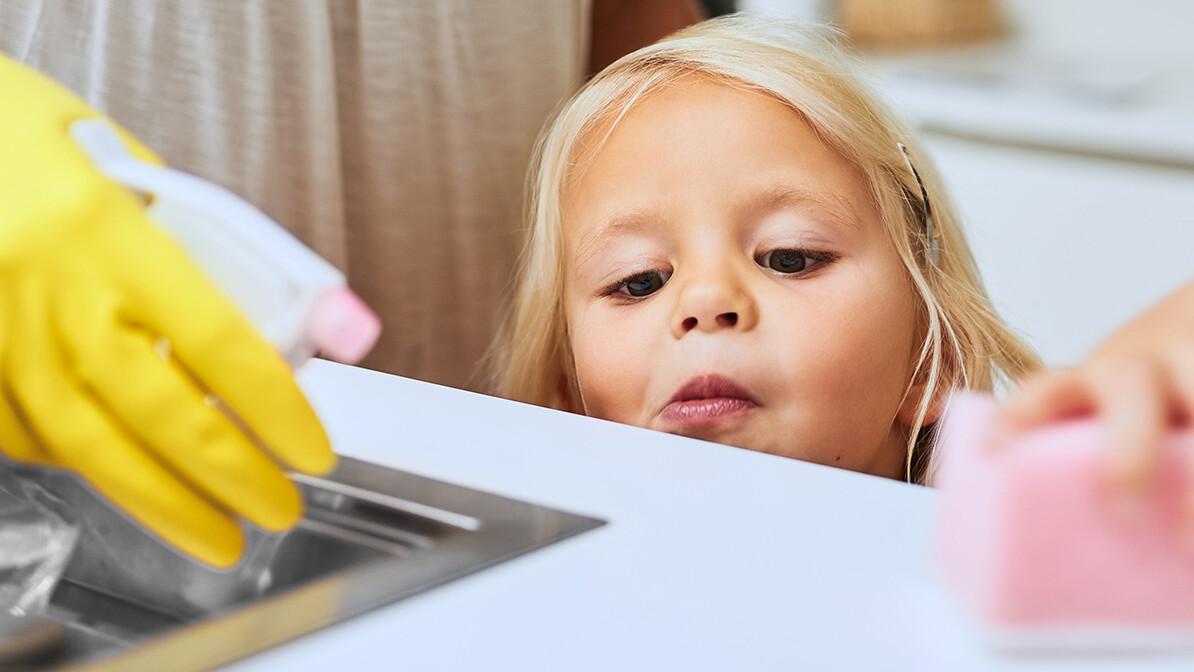
Lori Wildenberg: Navigating Parenting When the Going Gets Tough (Part 1)
John Farrell: What was your inspiration for writing Messy Journey and The Messy Life of Parenting?
Lori Wildenberg: I suppose my inspiration is always my children, and then God nudges. I am really passionate about the message of raising kids and living in a family and being in a community that is interdependent. That goes strongly against our Western mindset because we’re all about being independent.
It sounds good. We want our kids to be independent, but I think when we say that what we’re really meaning is we want our kids to be responsible because most of us, when we have our children, we want a relationship that lasts a lifetime. And if we raise our children to be independent, we are raising them in a way that will not satisfy that desire to have a relationship that lasts a lifetime.
I feel the message is so important that I just had a burning desire to write about that and to encourage people because this is really most parents’ hearts, but we tend to raise our kids in opposition to that not meaning to. Some of the parenting practices that we typically use lend more toward independence and less toward interdependence and relationship.
When I say interdependence, I mean a healthy give-and-take relationship, not one that is toxic or one that would be enabling or that kind of thing, but healthy. So, that’s been my inspiration. Even in the midst of hard things, like Messy Journey, which talks about some hard things, how to maintain a relationship with a loved one who perhaps has stepped off the path and how to go about that.
Both of the books have a similar theme in terms of needing strong connections, strong relationships within the family.
JF: If someone who was unfamiliar with both titles were to ask you what are these books about, what would be the first thing you tell them about the books?
Lori: I would say in both cases, the books are about connection and relationship and how to navigate those in a healthy, strong way even when the going gets tough. Both books have that theme running through them.
JF: You talk about interdependence versus independence and why interdependence is the method you prefer. For a parent wanting to raise their kid interdependently, what are some key points or things to remember?
Lori: I think I can best give an example of that and that will be more memorable. My kids are all two years apart and the middle two are a year and a half apart. So I had four kids, five and under. I can tell you it was not a meal until somebody spilled. It just happened every time.
Spillage happened at every single meal, and it started to drive me crazy. I knew I needed to come up with something that would help me get through the moment. This wasn’t an altruistic way of looking at parenting. It was a way so that I wouldn’t hurt the children every the time the spills came.
I started saying, “That’s okay, everybody spills. I’ll help you clean it up.” I’m going to unpack that because this is all about interdependence and what you do regarding the skills of life. It’s okay to let them know that mom and dad aren’t going to go crazy when things don’t go exactly right. And when I would say, “That’s okay,” it did something to me. My jaw stopped clenching and it just sort of washed over me like, “that’s okay.”
When I would say, “Everybody spills,” it normalized the mistakes of the spills. You could even say, “That’s okay, everybody crashes the car. We’ll help you figure it out.” So I say, “That’s okay, everybody spills,” to normalize it so the child doesn’t feel like they’ve made the worst mistake of their life and that has separated them from their loved ones. We want them to know that we’re with them in the spills of life; that they’re normal and we can handle it.
The final thing drives the point of grace and love home and the interdependence home. “I will help you clean it up.” In saying that rather than saying, “Go grab a rag and clean it up,” which is a natural consequence – you spill, you clean it up – that makes sense. And sometimes that is what you need to do, particularly if the little character’s spilling on purpose. Then you do want to do that.
“That’s okay, everybody’s spills. Go grab a rag and clean it up.” Over time what happens with that particular message is that the child feels like they’re on their own when they’ve spilt, and it’s up to them. So, then you might hear them say, if a sibling spills, “You broke that. You need to fix it,” or “That’s your problem.” That will be the result of giving that message time after time after time.
Again, sometimes you have to do that because you’re in a hurry, but if you can more often than not say, “That’s okay, everybody spills. I’ll help you clean it up,” what that message conveys is that you will come alongside them in the spills of life. They’re still responsible because you’ll act as their helper, not as enabling and cleaning it up for them. You’ll come alongside them and be with them, and they know that they can get through anything because you will be alongside them. Of course, as they get older, you may not always physically be able to be alongside them, but you can in a way of encouragement.
Those are some things that can be done to encourage interdependence rather than independence. Then a beautiful thing happens when you start saying, “That’s okay, everybody spills. I’ll help you clean it up.” That message after time, when one of the siblings spills and you are within earshot but perhaps not in the room, you’ll hear another one say, “That’s okay, everybody spills. I’ll help you clean it up.”
That’s the kind of family I want to live in. A family that can celebrate together and be with each other side by side during the spills of life. That’s the thing that captures interdependence.
JF: Regarding Messy Journey, if someone asked you for the best piece of advice from that book, what would you say?
Lori: I think there’s maybe two things. One to never give up. And two, you are not alone. You’re not alone in your struggles.
When our kids are little and we’re struggling with how to potty train or how to get them to sleep, those sorts of things, we have no trouble asking for help. We have no trouble asking for help or letting people in on our struggles. If we have a health concern – let’s say our child has cancer – we reach out and ask for help, but when we’re having relational issues or we’re having prodigal-type issues where they’ve wandered off the expected path, we tend to isolate. Again, we end up going independent versus seeking the community and knowing that we are not alone. God is with us and he has provided people in our sphere that can be our community to help us out.
To find the support and to know to never give up because our God is a God of restoration and that is His heart to restore the family to continue to pursue.
…
Order your copy of Messy Journey: How Grace & Truth Offer the Prodigal a Way Home by Lori Wildenberg
Order your copy of The Messy Life of Parenting: Powerful and Practical Ways to Strengthen Family Connections by Lori Wildenberg
Trending Now
Sign up today for your Inspiration Today Daily Newsletter
Supercharge your faith and ignite your spirit. Find hope in God’s word. Receive your Inspiration Today newsletter now!
John Farrell
John Farrell serves as the Digital Content Manager at Inspiration Ministries, where he oversees the planning, organization, and management of website content to support the ministry's global digital outreach. With a strong background in writing and editorial strategy, John ensures that the articles, devotionals, and discipleship resources on Inspiration.org are accurate, engaging, and aligned with the ministry's mission.
John has authored more than 1,000 articles, press releases, and features for Inspiration Ministries, NASCAR, Lionel, and Speed Digital. His versatility as a writer is also showcased in his 2012 book, The Official NASCAR Trivia Book: With 1,001 Facts and Questions to Test Your Racing Knowledge.
A graduate of Appalachian State University, John brings excellence and attention to detail to the digital experience at Inspiration Ministries. He lives in Concord, N.C., with his wife and two sons.
Related Articles
February 13, 2026
How to Find Joy in the Midst of Sorrow
Sorrow has a way of arriving uninvited—and staying longer than we expect. Loss reshapes our lives,…
January 30, 2026
What’s Happening to Your Family?
Families around the world are facing challenges that feel heavy, confusing, and unfamiliar. This…
January 14, 2026
How to Build a Stronger Marriage
When the same arguments keep resurfacing and distance quietly grows, it’s easy to feel stuck. If…
August 23, 2025
If God Is a Loving God, Why Is There So Much Pain in This Life?
Why is there so much pain in this life? This heartfelt article wrestles with that question through…
Next Steps To Strengthen Your Walk
Inspiration Today Newsletter
Supercharge your faith and ignite your spirit. Find hope in God’s word. Receive your Inspiration Today newsletter now!
Christian Articles
Find articles to strengthen your walk and grow your faith. We have a wide range of topics and authors for you.
Submit A Prayer Request
We are here for you. Simply click on the button below to reach us by form, email or phone. Together we will lift our hearts and voices with you in prayer.







